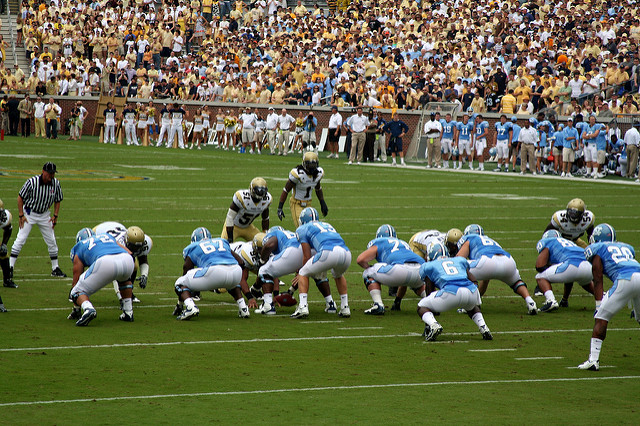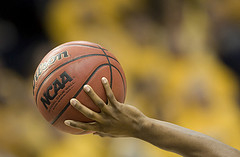
Scandals in college athletics are becoming so commonplace that the NCAA’s decision not to sanction University of North Carolina over academic misconduct barely made the news, while corruption in NCAA basketball has turned into a major FBI investigation. Fans might be justified in viewing the NCAA as a boogeyman in scandal-plagued college sports. After all, the NCAA is the organization that began using the term “student-athlete” as a way to avoid workers compensation claims from the widow of a college football player. Rick Eckstein, however, argues in Salon that the NCAA is simply a sign of larger problems in higher education. In his evocative language,
“If the NCAA is Oz’s projection on the wall, a profit-oriented higher education system is behind the curtain pulling the levers.”
Eckstein ties spending on college athletics, which is known to run huge deficits, to the larger trend of the “corporatization” of higher education. Under this logic, higher education institutions work more like businesses than schools, and college athletics are a way for university administrators to achieve a variety of revenue-driven goals. For instance, sports are a way for colleges to manipulate enrollment statistics, encourage alumni donations, and, most importantly, expand the school’s brand. Eckstein writes,
“If we think about college sports as a marketing venture rather than an educational venture, all of this spending makes perfect sense. Think of players as walking advertisements – each branded with the school’s logo – who appear before millions of viewers on ESPN and ABC.”
Athletics isn’t the only part of higher education that seems to have an unstable foundation. Over half of Republicans now believe that universities have a negative impact on the country. Even the students who attend have less faith in the institution. Eckstein argues that it’s time to view NCAA athletics, with all of its contradictions, as a symptom of a corporatized higher education system that places fights over financial gain over student learning.

